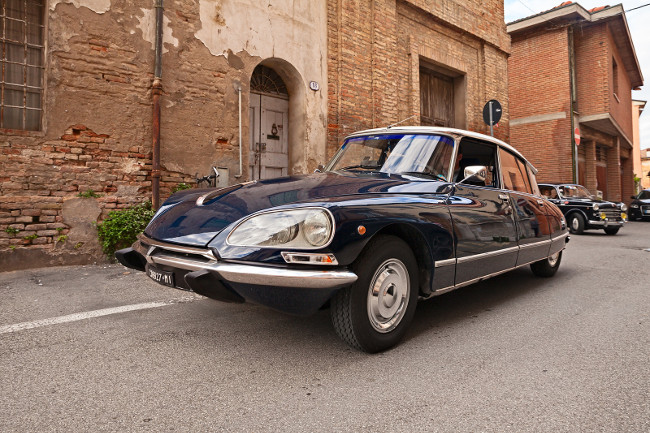John Mayhead looks at whether there’s still money to be made from classic cars and suggests five rules to follow when buying.
Over the last 15 years-or-so, making money from classic cars was relatively easy. Almost everything, from a Fiat 500 to a Ferrari 250 GTO, rose in value. As long as you bought a half-decent example and kept it well-maintained, you could almost guarantee it would cover its costs and many made a very decent profit.
Today though, the classic vehicle market is a much more complicated place. At the end of 2018, the Hagerty Price Guide which monitors UK and European classic car values, saw 26% of the vehicles it tracks drop in value. Some of these had simply been overpriced; cars like early E-Type Jaguars, 1980s Ferraris and early Porsche 911s shot up in value over the last few years but, without the exclusivity of small production numbers, the market found its own level. Others had been held by investors, some of whom had overpaid in the belief that prices would keep on rising. When they didn’t, some investors decided to release their equity and move their cash into something else, even if they made a small loss.
So, in today’s continued economic uncertainty, can you still buy a classic car as an investment? Maybe. A few years ago, an article such as this would list the makes and models that were soaring in value, but today it’s not that easy. Rather, you should follow certain rules that should help you buy well.

Rule 1: Follow the Money
There are certain cars that will always do well. Despite the general downturn in the market, a Ferrari 250 GTO became the most expensive vehicle ever sold at public auction last year when it was purchased for $48.4m. A few very special models have such a following that there will always be someone with the money ready to buy one, such is the cachet they give to owners and the entries they provide to the world’s most exclusive car events. Ferrari dominate this list, with the 250 GT California Spider, the 250 LM and the 250 GT SWB all falling into this category which also includes the McLaren F1, the Jaguar D-Type, the Porsche 550 Spyder and the Aston Martin DB4 GT Zagato.
Rule 2: Follow the Formula
If you are not looking to buy the very top tier of classic cars, then as a general rule of thumb, there’s a formula that most successful cars follow. First, they must be made by one of the world’s most prestigious marques such as Ferrari, Porsche, Lamborghini or Aston Martin. Secondly, they should be produced in very limited numbers. Ideally, they should have been be homologated for racing, and had success on the track. Finally, they should have been driven by A-list celebrities back in their day. Although the last point seems superficial, it is not: A-listers want to be seen only in the most stylish, most appealing cars and this filters out all but the most gorgeous of cars.

Rule 3: History, History, History
People don’t just buy a machine when they invest in a classic car, they buy a story that they want to be part of. Cars with a fantastic history can command a value many times that of other, almost identical, versions of the same model. History is why a battered 1968 Highland Green Ford Mustang that was driven by Steve McQueen in Bullitt has been valued at $4m rather than the $20,000 it would probably be worth without a story. History is why a Ferrari Enzo delivered as a gift to Pope John Paul II sold for $6m, some eight times the standard value recorded in the Hagerty Price Guide. Cars with top-quality celebrity ownership (especially those connected with motorsport), cars with racing provenance, cars that are the first or the last of their type, and cars with exceptionally low mileage are always in demand.
Rule 4: Buy the Best
If there’s one common thread that links most of the cars that have sold for above estimate at auction in 2019, it is that they are the very best examples of their type. From Minis to Maseratis, the best restored or the most original will always have buyers clamouring to bid. In difficult times, collectors want to consolidate, holding the strongest cards they can in their hand. In this respect, don’t compromise; better to pay more for the best that will hold its value than for #2 that may not.

Rule 5: Make Friends
Many classic car sales take place out of the public eye. Many truly special cars change hands through brokers and one-to-one sales, and you need to be part of this world to have a chance of a purchase. Unless you are already well-established in the world of classic cars, finding a dealer or broker to work with can offer opportunities that would otherwise not be presented to you. Trust is key: the broker needs to know exactly what you’re looking for, that you have funds ready to go, and that you’ll follow through on any deal he arranges. You need to trust that the car he finds you is right for you, and it may be worth trying a number of successful smaller transactions with a dealer to build trust on both sides. Such relationships can take time to establish, but in such a small world as that of classic cars, they can be rewarding.
The final advice to give to anyone buying a classic vehicle is to buy with your heart. Classics are luxury items, so buy something you’ll love. That way, even if the value doesn’t rise as expected, you’ll have the benefit of owning something that gives you pleasure every time you go into the garage or go for a drive; you can’t say that for many other assets.
John Mayhead is the Editor of the UK Hagerty Price Guide which tracks over 40,000 individual values of classic cars and is considered the UK’s leading analytical tool of the historic vehicle market. It can be accessed online at hagertyinsurance.co.uk.
Image credit at the very top of the article: L MCPhotographer/Bigstock.com






















